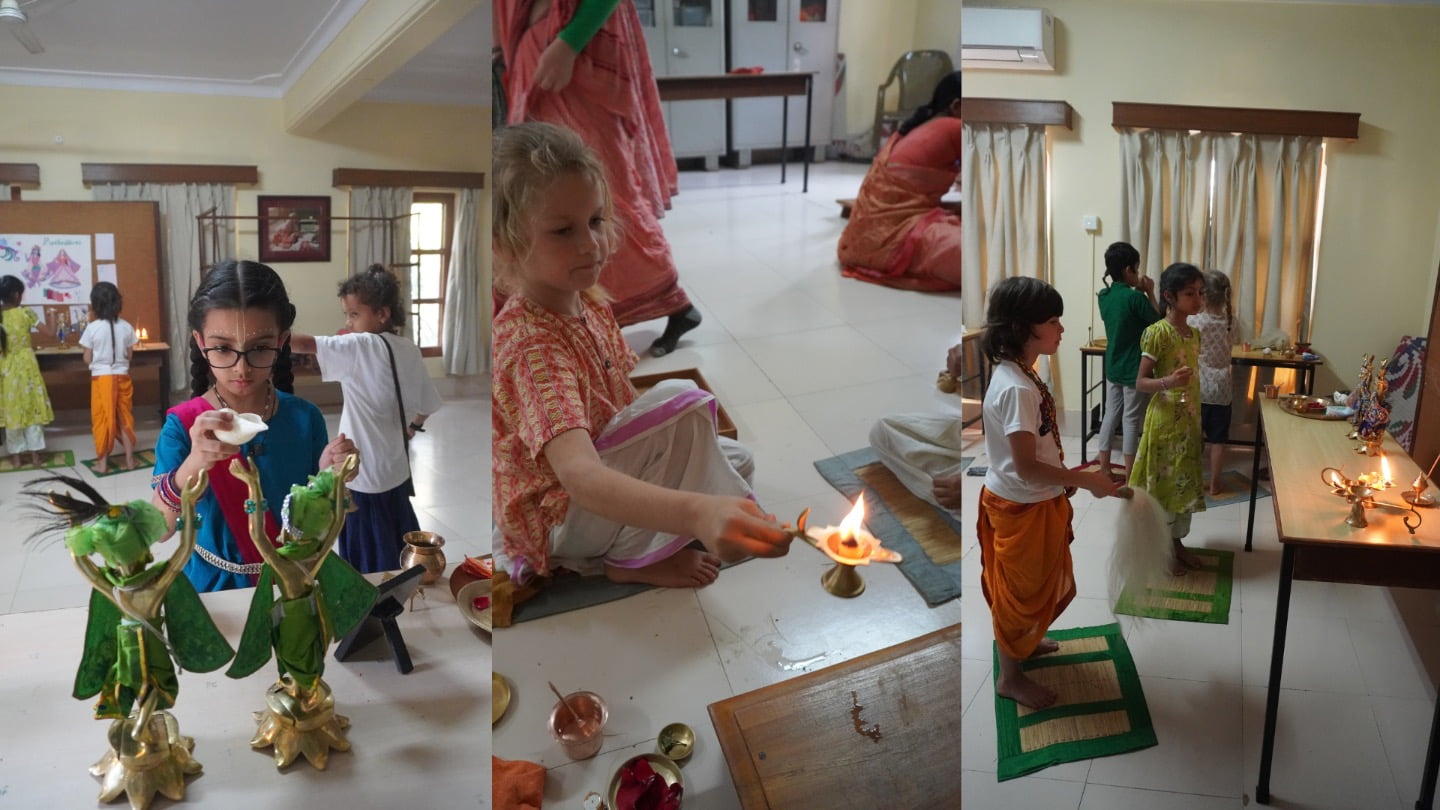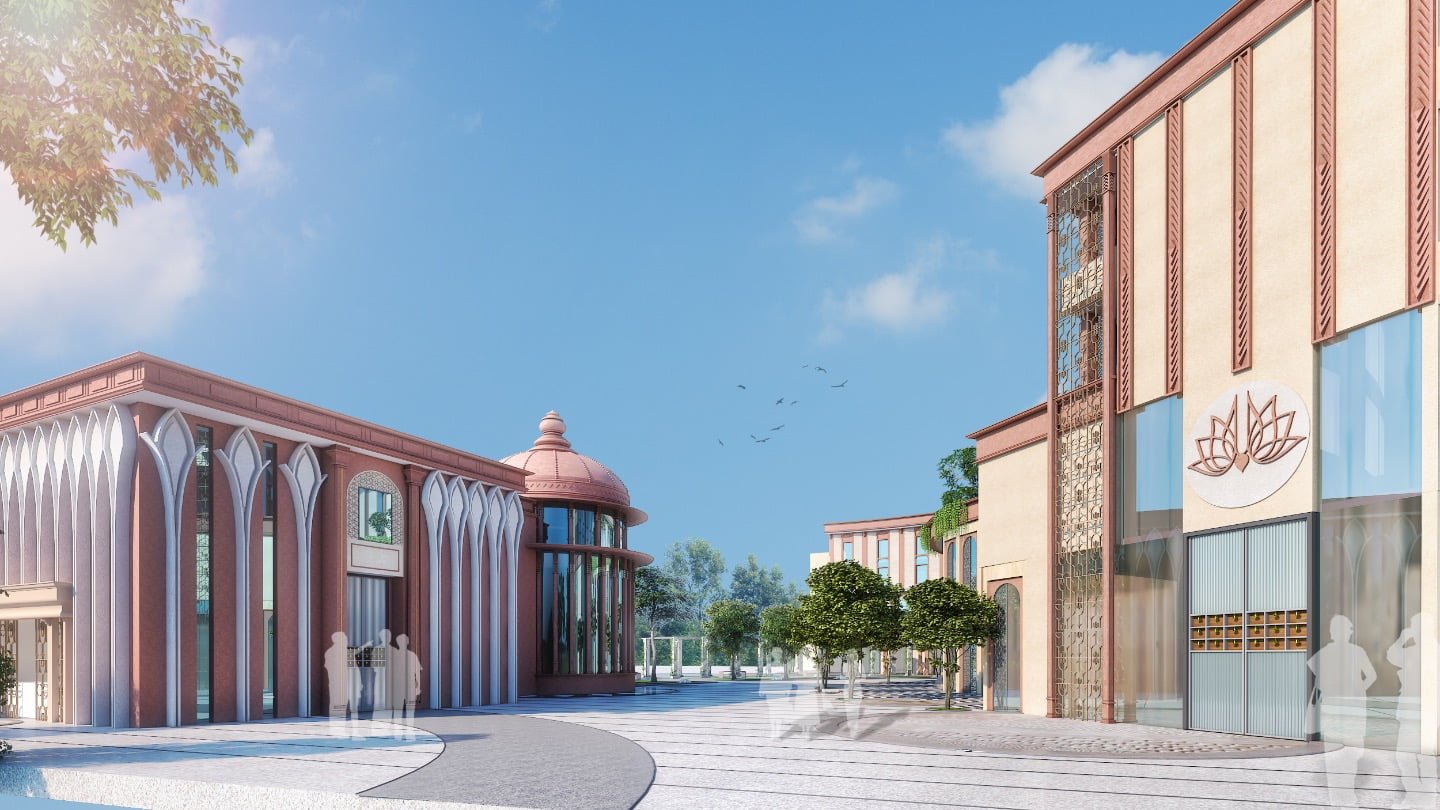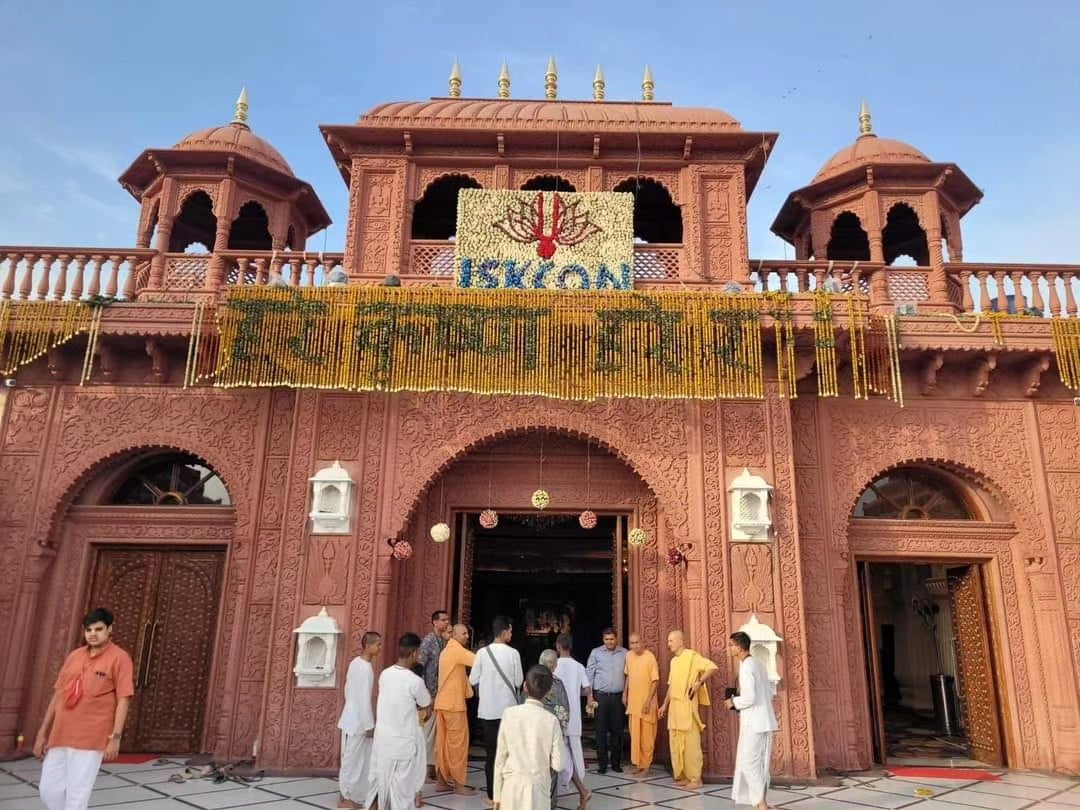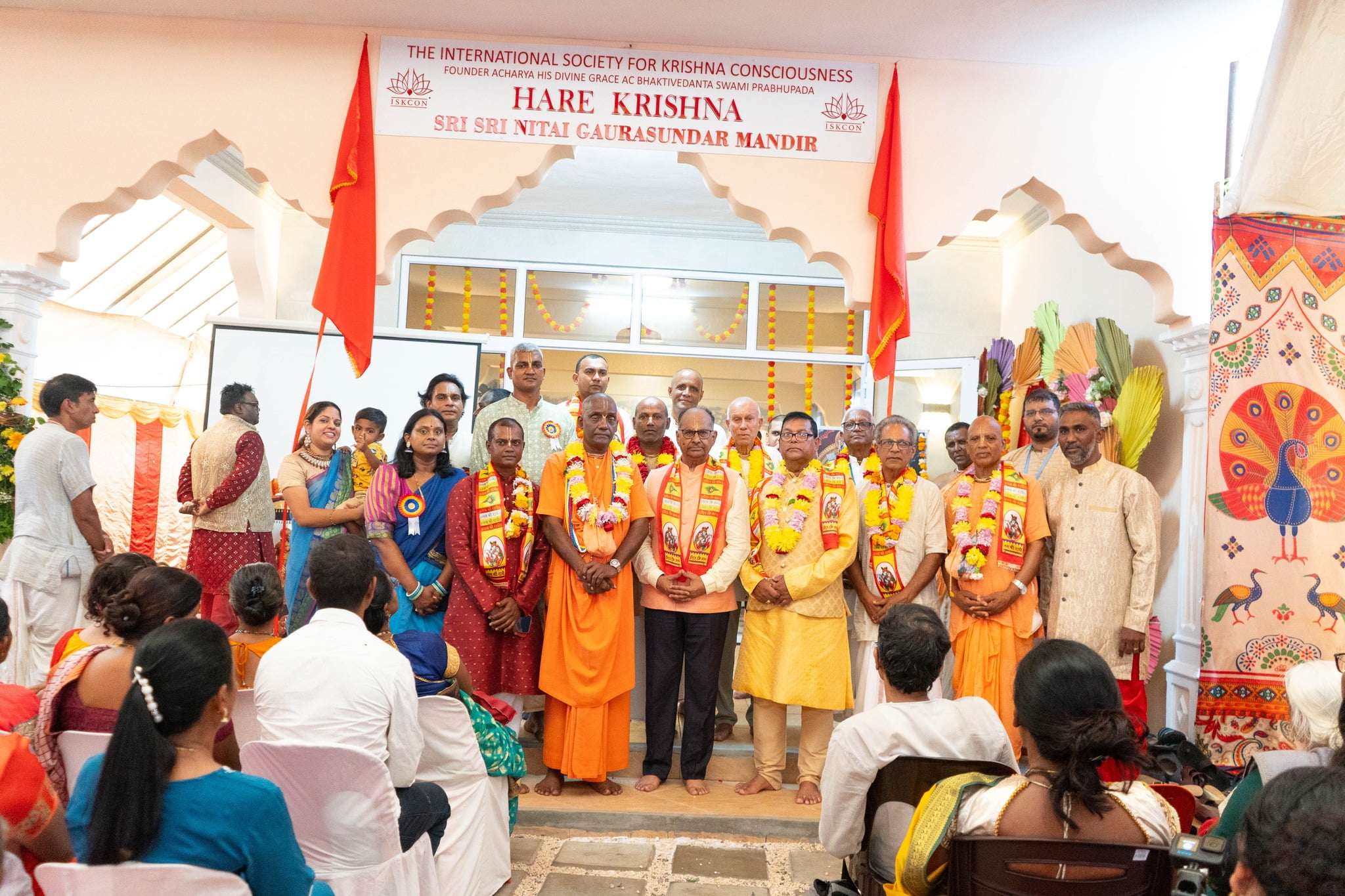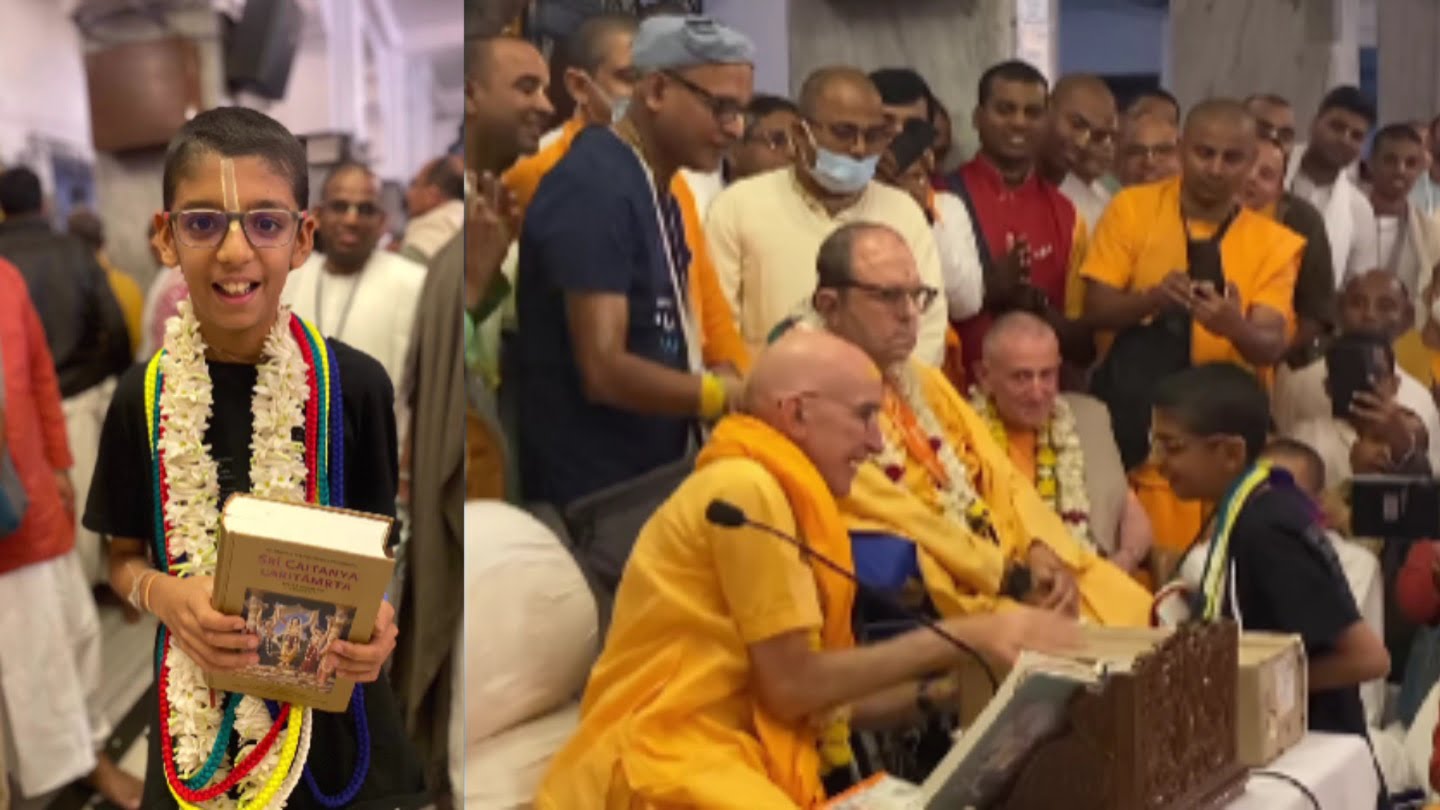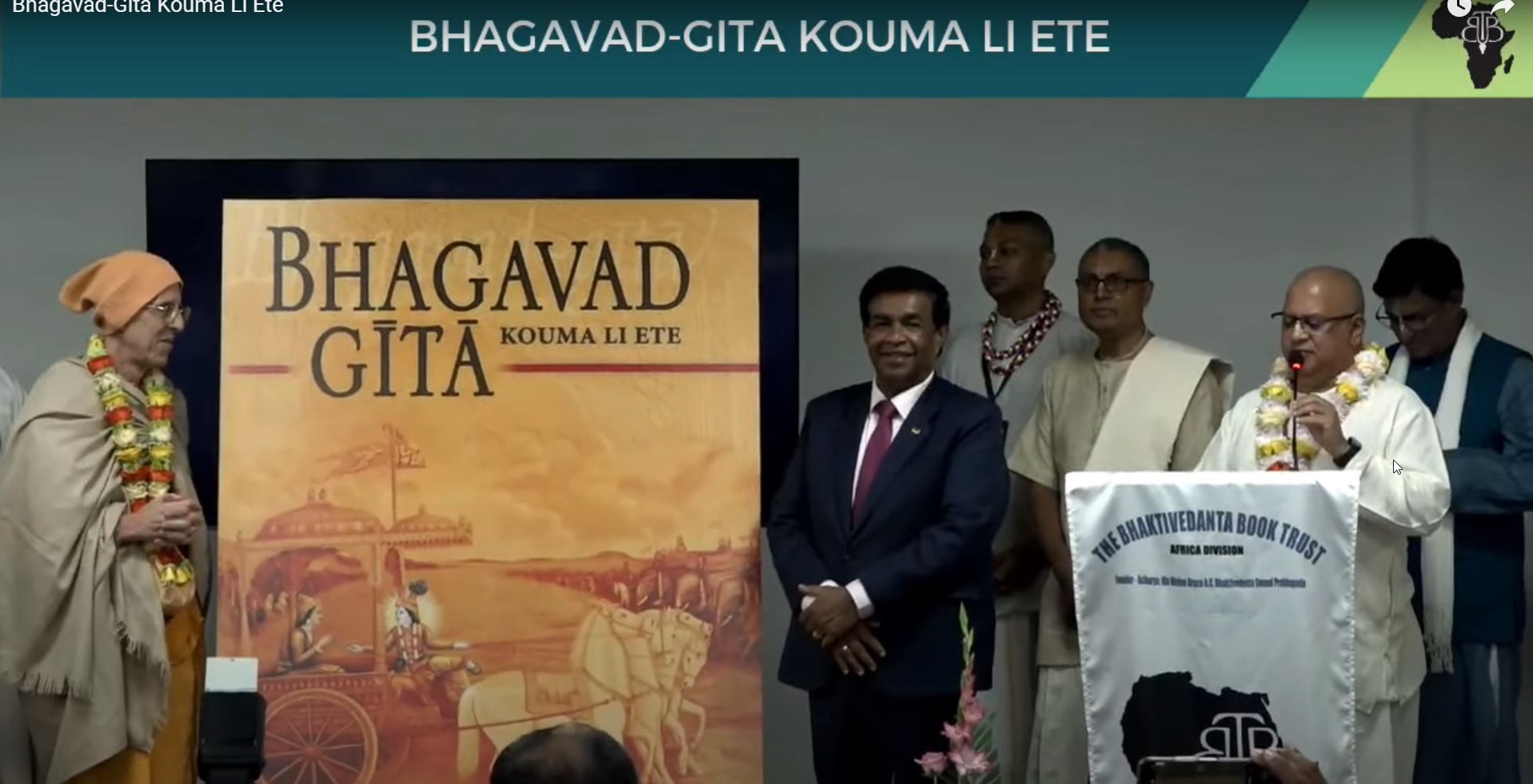Flower Palaces and Poetry: A Visit to Sacred Varsana
By Madhava Smullen | Jul 19, 2008
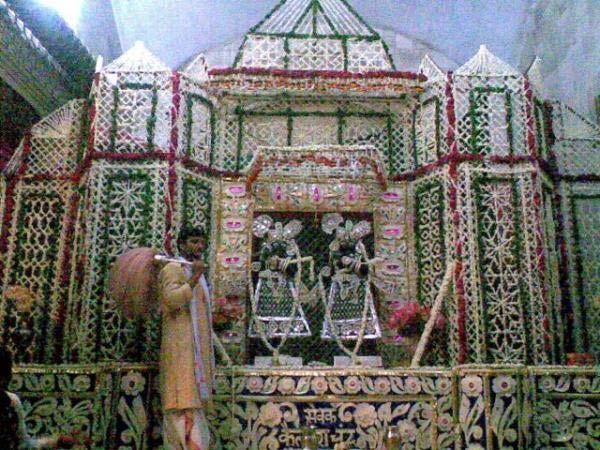
As sacred tour guide Dina Bandhu Dasa approached Varsana, the legendary home of Lord Krishna’s consort Radharani, dusk was falling; but the festivities were only beginning.
Dina Bandhu is one of the privileged few westerners who know about the annual Phul Bangalas – flower palaces – and Kavi Sanmelans – poetry recitals – demonstrated at Varsana and Nandagram, the village of Krishna’s adoptive father Nanda Maharaja. Of course, with his deep tan, intuitive Indian head-wiggle, and years of touring Indian holy places, he’s practically a local villager himself by now.
“The deities of Sri-Sri Ladli Lal stood on an elaborate flower palace woven with jasmine and mogra,” he says, his enthusiasm and dramatic delivery as gripping as if he were guiding one of his tours. “The temple’s fans wafted the fragrance to the four directions. And with this year’s monsoon the earliest in 108 years, the atmosphere was quite cooling – highly unusual since the temperature in mid-June usually never goes below 120 F.”
Brahmins from Varsana and Nandagram sat on opposite sides of the temple courtyard, facing each other. Wielding microphones which stood out amidst the antiquity of the place, they began reciting poetry in the local Brijabhasha dialect. “Dhanya Brijbhasha, dusri na bhasha, te ne vani ki vidhata ko bolbo sikhayo hai,” they intoned. “Glorious Brijbhasha, there’s no another like you. You even taught the inventor of language how to speak!”
Some brahmins recited ancient verses, while others chose their own compositions. But all were caught up in the spontaneity of their sentiment, each speaker getting inspired and taking his cue from the one before. “Now I can understand about eighty per cent of the words in Brijbhasha,” Dina Bandhu says. “But it’s so sweet to hear even if you don’t understand it – it takes you straight to the spiritual world.”
Among the most famous Brijbhasha poets invoked that evening was Raskhan, a Muslim by birth who fell in love with Radha and Krishna. It’s probably no coincidence that although Raskhan was actually his Muslim name, in Hindi it means the abode of rasa, or the treasure house of love. As the poem goes:
“I searched for the Supreme in the songs of the puranas, and hearing Vedic verse, my desire quadrupled. Still nowhere did I see or hear about His real form or nature Aho!" cries Raskhan. “All my searching and calling had failed! Then from afar in the kunja kutira I saw Him sitting massaging Sri Radhika’s lotus feet.”
Another verse demonstrates Raskhan’s attraction for Braja, Krishna’s land: “If I have to take birth as a human, then let it be as a cowherd in the village of Gokula. If as an animal, then let me graze with the cows of Nanda Maharaja. If as a stone, then let it be one on Govardhana, the hill that Krishna lifted against the anger of Purandara (Indra, the king of heaven) If as a bird, then let it be in the branches of the Kadamba tree, overlooking the banks of the Kalindi!”
The beauty of these verses riveted Dina Bandhu, who stayed an hour later than he’d planned.
The very next day, the festival was repeated at Nandagram, where brahmin priests worshiped their deities of Krishna Balaram with the same wonderful flower palace and poetry recitals.
“Somehow although they don’t usually allow photos at all, we saw several people snapping away with their cell phones,” says Dina Bandhu. So my driver Gita Govinda promptly followed suite, and got several photos for those who couldn’t be there.”
For Dina Bandhu, today is yet another chance to soak in the spiritual atmosphere of Braja Dhama, the holy land of Vrindavana. For us, it’s a day when we can gaze at pictures like these and let our minds take us there.



